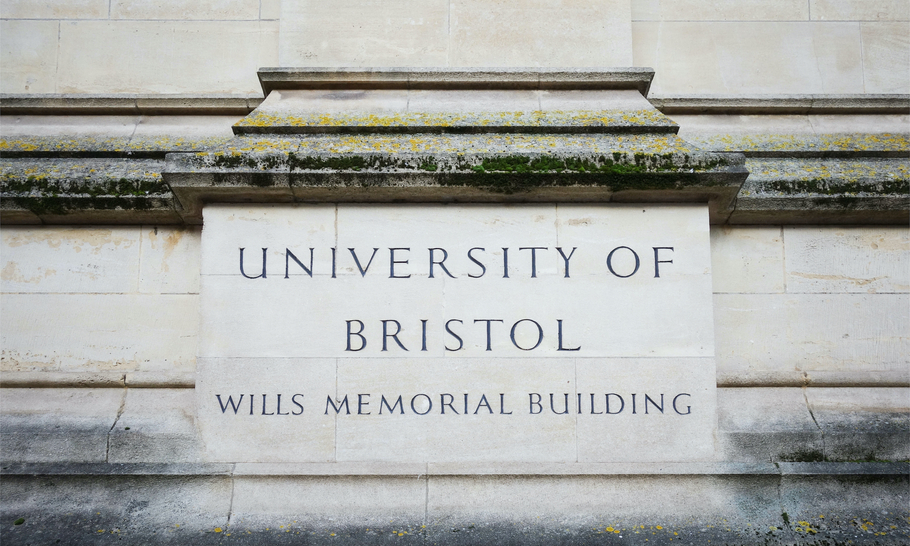Herman’s hundredth: academics and anti-Semitism revisited

(Shutterstock)
This is my 100th piece for TheArticle. In these articles two subjects have loomed large. First, anti-Semitism, from Corbyn to university campuses, and second, TV news coverage. What has worried me, in particular, is where they have come together, the growing silence of TV news programmes about anti-Semitism.
Flagship news programmes like Newsnight, the Today programme and the main daily news bulletins, have failed to address the recent rise of anti-Semitism in Britain, its causes and its defining features. Occasionally, if a well-known figure like the late Lord Sacks, Luciana Berger or Dame Margaret Hodge spoke out over a particular incident, there would be a news item. But, by and large, the media have not covered anti-Semitism properly.
As David Baddiel has pointed out in his new book, Jews Don’t Count, this silence would be inconceivable if any other minority had been attacked in this way. There would have been a huge outcry in the media.
Take two recent examples. First, the invitation to Ken Loach to speak at his old Oxford college, St Peter’s, which led to protests from Jews and an apology by the Master, Professor Judith Buchanan, who seemed curiously surprised by the scale of the response from Jewish students and by Jews on social media. But, otherwise, many thought these protests were an infringement of Ken Loach’s freedom of speech. “Just move along. Nothing to see here,” was the main response.
However, since the rise of anti-Semitism under Corbyn I have always pointed out the importance of the solidarity of those I have called the righteous gentiles, those like Daniel Johnson here at TheArticle, Jason Cowley at The New Statesman, John Gray and many more who have passionately opposed anti-Semitism. News programmes, it seems, not so much.
Second, the Professor Miller case at Bristol. Miller has been criticised by individual Jewish students and student societies at Bristol University for creating a hostile atmosphere for Jews at the university. They have been supported by celebrities like Rachel Riley, Lord Finkelstein in a recent column for The Times, a number of high-profile organisations opposed to anti-Semitism, by a local Labour MP and by the Mayor of Bristol, Marvin Rees. Despite this, the story hasn’t cut through into mainstream media coverage.
By contrast, over 250 academics and other supporters have signed an online petition criticising “the unrelenting and concerted efforts to publicly vilify our colleague Prof [sic] David Miller.” These “attacks” and this “harassment” were condemned by scholars ranging from big names like Noam Chomsky and Judith Butler in America to lesser-known figures in Australia and Japan. The vast majority of signatories (more than 150) are British academics.
A few points stand out from this petition. First, the inaccuracies. Miller is not “an eminent scholar”. Very few people outside of his department would have heard of him had it not been for this controversy. I doubt that Professors Chomsky or Butler have studied his academic work with much attention.
The letter to Bristol’s Vice-Chancellor goes on, “The attacks on Prof Miller stem from a lecture on Islamophobia that he gave to students at the University of Bristol two years ago.” This is not true. The criticisms were in response to his attacks on Zionism and Jewish student societies with statements like this: “How do we make sure Zionism is ended essentially. There’s no other way of saying that. It’s not enough to say Zionism is racism, Israel is a settler colonial society… The aim of this is not only to say things but to end settler colonialism in Palestine, to end Zionism as a functioning ideology of the world.”
The second point is that those who thought Left-wing anti-Semitism would end with Corbyn’s electoral defeat in 2019 are sadly mistaken. Violent attacks on individual Jews and places of worship, anti-Semitic graffiti and hostility towards Jews and Zionism on university campuses continue. Now 150 British academics sign a petition “to express our solidarity with Professor Miller” and no one bats an eyelid.
Third, could the signatories have been a more predictable bunch? Noam Chomsky, Ilan Pappé, John Pilger, Malia Bouattia, Norman Finkelstein and a bunch of obscure academics, mostly from minor institutions. Hardly any are from Britain’s top universities. Two from Cambridge, one each from Oxford, Imperial and the LSE. There are more signatures from the University of Teesside or Petroc School of Progressive Studies than from Manchester, more from Solent University than from Birmingham.
It’s not just a question of which universities they come from. More striking are the subjects represented. No Classicists, philosophers or computer scientists, hardly any scientists, medics or mathematicians. Only two historians. Instead, lots of sociologists, educationalists and people who teach politics and international studies. The usual Media, Communications and Cultural Studies crowd.
Bristol, of course, is a major university. Miller himself is a Professor of Political Sociology and eleven colleagues at Bristol have signed this petition. You would think our best journalists and reporters would be investigating how a Russell Group university could have a dozen academics holding these views, but there doesn’t seem to be the interest.
You might also think alarm bells would be ringing at Bristol University, but so far they have made only one derisory statement. Otherwise, the Vice-Chancellor has done nothing. I started to follow @BristolUni on Twitter so I could monitor their response. They have not even mentioned the Miller case so far.
It is time for the Government to step in, both in this case and to deal with the larger question of anti-Jewish abuse in many of our universities. It is also time for the mainstream media to take anti-Semitism seriously, in the way we would expect them to respond to any other form of race-hatred. I hope that if I am fortunate enough to write a 200th article for TheArticle, this piece will by then seem curiously out of date. Sadly, I doubt it.





